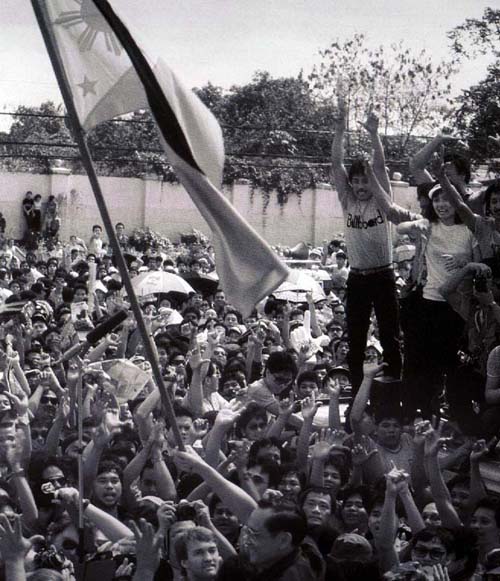The People Power Revolution (also known as the EDSA Revolution and the Philippine Revolution of 1986) was a series of popular nonviolent revolutions and prayerful mass streetdemonstrations in the Philippines that occurred in 1986, which marked the restoration of the country's democracy. It became a subsequent inspiration for the Revolutions of 1989 that ended communist dictatorships in Eastern Europe It is sometimes referred to as the Yellow Revolution due to the presence of yellow ribbons during the arrival of Benigno Aquino, Jr..These protests were the culmination of a long campaign of civil resistance by the people against the 20-year running authoritarian, repressive regime of then president Ferdinand Marcos and made news headlines as "the revolution that surprised the world.
The majority of the demonstrations took place at Epifanio de los Santos Avenue, known more commonly by its acronym EDSA, in Quezon City, Metropolitan Manila and involved over 2,000,000 Filipino civilians as well as several political, military, and religious figures, such as Cardinal Jaime Sin. The protests, fueled by a resistance and opposition of years of corrupt governance by Marcos, occurred from February 22–25, 1986, when Marcos fled Malacañang Palace to the U.S. state of Hawaii and conceded to Corazon Aquino as the legitimate President of the Philippines.



